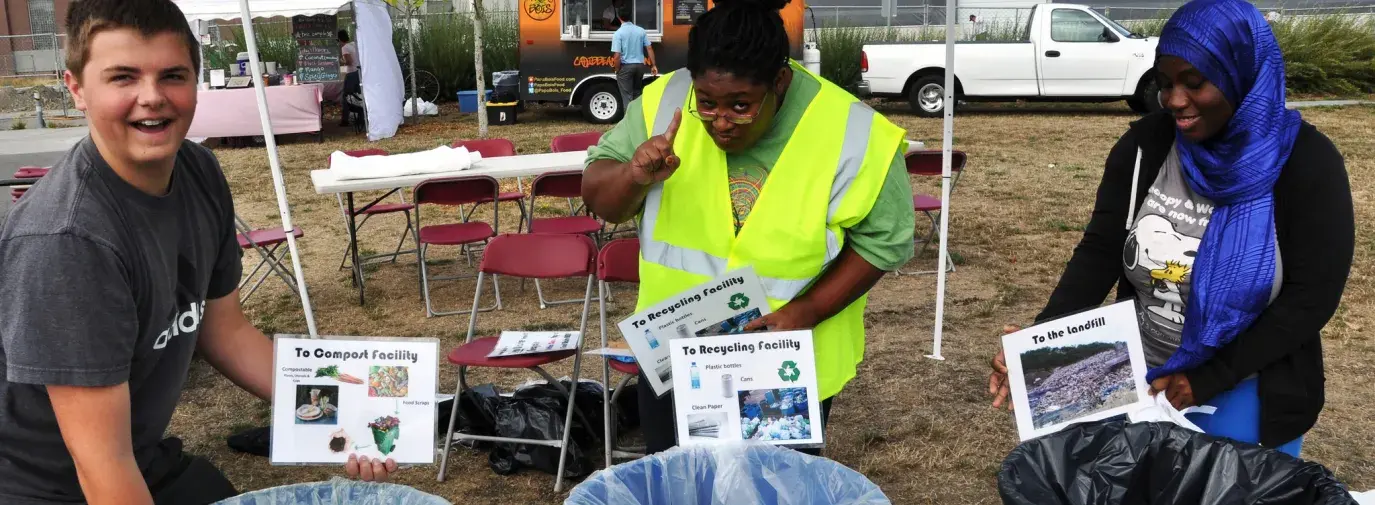
1. Reduce and Reuse
The less you throw away, the better off the planet will be.
2. Don’t “Wish-cycle”
Get a list of the items your local recycler accepts and put only those into your recycling bins.
3. Use recycling best practices
Fend off recycling contamination with our tips to Rescue Your Recycling.
4. Don’t landfill your food waste
Food waste is the single largest component of waste headed into US landfills, at 18 percent. Instead, it could be turned into rich compost to make the soil healthier and able to sequester more carbon. Check out Green America’s best composting tips.
5. Be mindful about E-Waste
Many “recyclers” send electronic waste to developing countries, where it’s dismantled by hand, harming workers and the environment. Certified E-Stewards recyclers ensure that your electronics are recycled responsibly. Find one near you at e-stewards.org.
6. Recycle your “weird” things
Check out Green America’s list of 21 Things You Didn’t Know You Could Recycle.
7. Support extended producer responsibility
Pressure corporations to use less packaging, make their packaging easily recyclable, and take back hard-to-recycle packaging and products. See p. 10 for ways shareholders are using their power, and encourage your members of Congress to support extended producer responsibility laws at the state and federal level.
8. Network with zero-waste communities
Eco-cycle’s “Zero-Waste Map” allows you to find zero-waste policies and programs working today in communities just like yours across the US. If you’re fighting off an incinerator, the Global Alliance for Incinerator Alternatives is a worldwide alliance of more than 800 groups working toward zero waste, environmental justice, and an end to incinerators.
9. Find expert assistance for your community
The Institute for Local Self- Reliance’s Waste to Wealth program helps communities across the US fight incinerators and landfills, and research, demonstrate, and plan recycling, composting, and zero-waste community programs.







